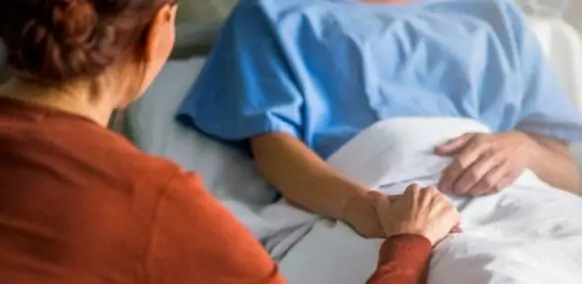Established in 2006 we are an independent law firm that is authorised and regulated by the Solicitors Regulation Authority. We are based in the north west and have supported clients across England and Wales. Our team of solicitors are highly experienced in medical negligence claims and have previous experience of working in health care.
For most people with little or no knowledge of law, pursuing a medical or clinical negligence claim can seem like a daunting task. But with the right help and knowledge, you can ensure that you are making the best decisions for your future. Here are ten vital things you should know about medical negligence claims.
1. Legal definitions
A medical negligence claim (sometimes known as a clinical negligence claim) occurs when a patient takes their medical practitioner or hospital (or both) to court for compensation due to an act or acts of negligence incurred during their medical care. For this to happen, the Claimant needs to prove that the care provided fell below the standard of a competent medical professional, this caused damage to their health, and would not have otherwise occurred.
2. Time limits
Usually, a claim has to be lodged at Court within three years of the patient becoming aware of the problem — this is often when the negligence occurred. There are certain times when claiming for medical negligence carries exceptions, including if the patient is under the age of eighteen, or lacks mental capacity. Judges may make other exceptions, although this is unlikely. Find out more about time limits.
3. Finding a Solicitor
It is important to seek a specialist medical negligence solicitor who is experienced and knowledgeable in the field of medical negligence you are pursuing. They will tell you whether they think you have a case for claiming for medical negligence and discuss the next steps you could take, keeping you fully informed on your legal options at all times.
4. You probably won’t go to trial
Almost all cases of medical negligence are settled before they go to a full trial. In most cases, the defence will come forward followed by an offer of financial settlement. However, you should be prepared that it is possible for your claim to proceed to court, and this is very much dependant on the facts of your case.
5. It doesn’t need to be an NHS doctor
Any and all health practitioners can be held accountable if you have the proof that they have neglected your care or similar. This includes Dentists, Cosmetic Surgeons, private clinics, and eye clinics. Any of these professionals are open to having someone claim for medical negligence against them if there is a recognisable act of negligent action or inaction.
6. How you’re going to fund it
It used to be that Legal Aid was available to fund medical negligence claims, but this is only available in very limited circumstances. The main option that most Claimants use to fund medical negligence claims is to enter into a Conditional Fee Agreement (more commonly known as ‘No Win No Fee‘). You may also have legal expenses insurance on an existing insurance policy, and we can investigate this with you.
Private funding is also available but is not commonly used.
7. You will need proof
If you don’t have any physical evidence it’s very unlikely that your case will go through — that is why it is so important that you keep records of absolutely everything to do with your case, no matter how unimportant it may seem. The kind of proof you need will be records, notes, correspondence, and expert medical opinions. Our medical negligence claims team will help you to collate this evidence.
8. How to get additional proof
When your Solicitor first gets in contact with the medical practitioner, they will request any medical records or notes which are relevant to your medical negligence claim. Our medical negligence Solicitors are highly proficient and experienced in carrying out this process for our clients.
9. How long it might take
In most cases of medical negligence, the process leading up to a trial can take somewhere between eighteen months to three years and sometimes longer. The duration of the claim depends on the Defendants attitude to liability and causation, the injury sustained, and the complexity of the complaint.
10. You will need medical witnesses
In the majority of cases, medical witnesses will be called upon for their professional opinion. It is this expert evidence that will help to establish the act constituted negligence, the causal link between this and the damage, and the long-term impact for the Claimant.
In this difficult time, it is important you meet with a Solicitor you trust and who can help to guide you through the various hurdles of medical negligence claims. Learning as much as you can before commencing the process will aid you in making sensible decisions, so we’d be happy to speak to you today and provide you with the legal guidance you need.
Here to help you
Get in touch now and find out how we can help with your case for medical negligence compensation.
Please call us on 0800 234 3234 or contact us and a member of our legal team will call you back.
- Accident & Emergency (A&E) Negligence Claims
- Brain Injury Solicitors
- Cancer Misdiagnosis Compensation Claims
- Bowel Cancer Misdiagnosis Claims
- Cerebral Palsy Compensation Claims
- GP Negligence Solicitors
- Gynaecology Medical Negligence Solicitors
- Medical Misdiagnosis Claims
- Medication and Prescription Claims
- NHS Medical Negligence Compensation Claims
- Ophthalmic Negligence Compensation Claims
- Orthopaedic Negligence Claims
- Surgical Negligence Claims




